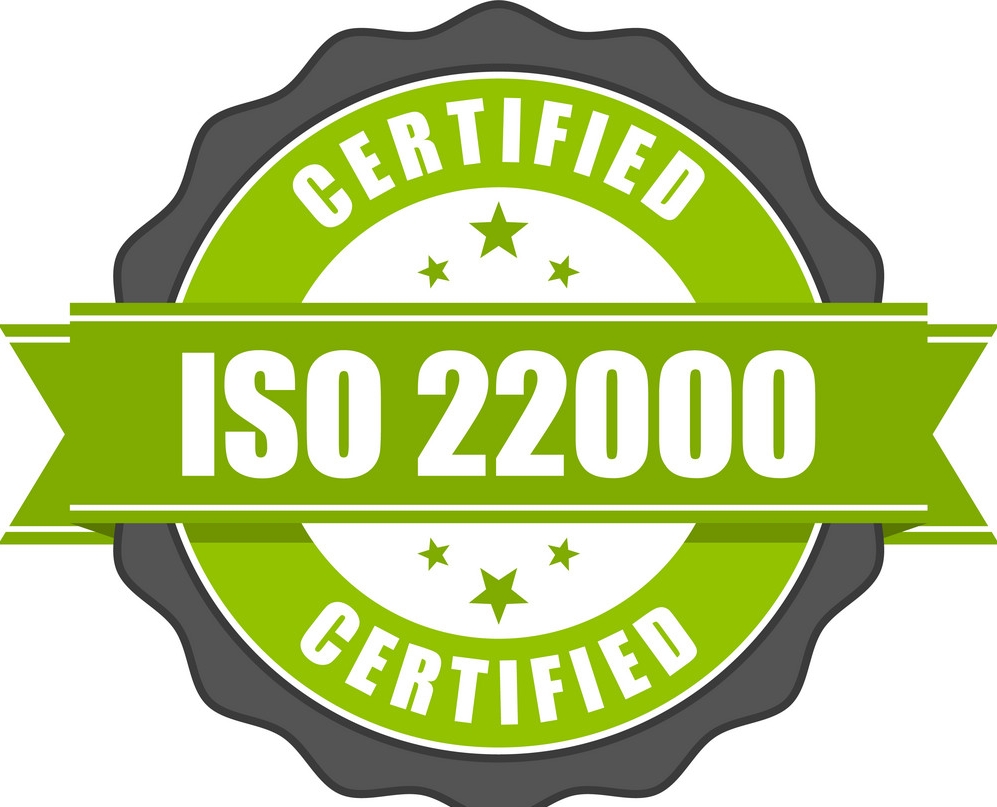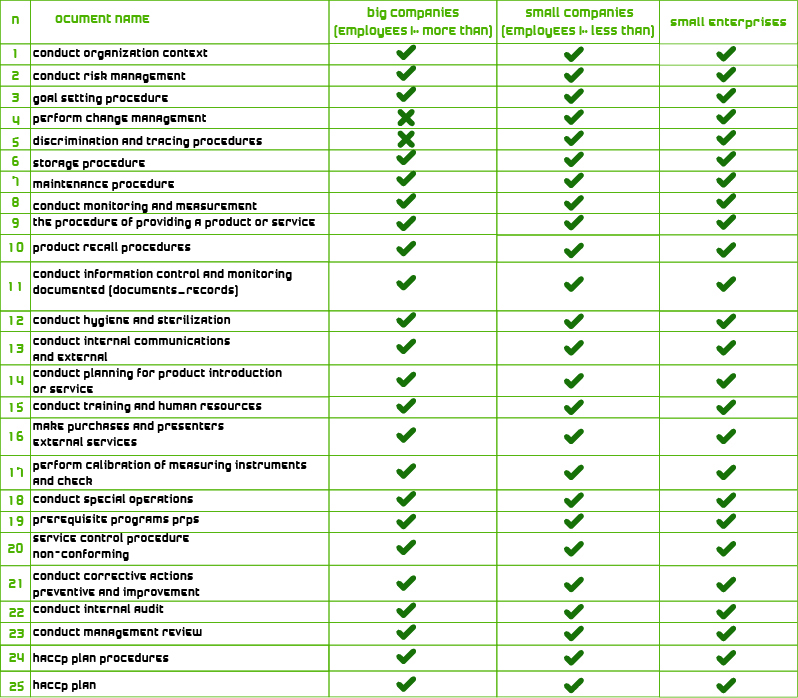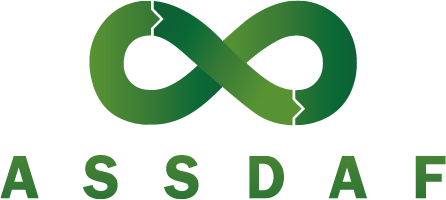Food Safety Management System FSMS ISO 22000:2018
Our consultants are ready to provide our experience, which extends for more than 20 years, in helping all types of industrial, commercial and service companies working in the food field to implement the Food Safety Management System 22000:2018 FSMS ISO standards and obtain the ISO certificate. Through our work, we will be with you step by step to build a food safety management system. Effective and compatible with international standards It helps you monitor the planning, provision and implementation of services and products, analyze biological, chemical and physical risks that threaten food safety, and identify and monitor critical control points (CCP). Obtaining the ISO 22000:2018 certificate has become a goal and a requirement for many organizations working within the food chain to demonstrate compliance with food safety standards..

Definition of food safety management system (FSMS ISO 22000:2018):
It is an international standard that specifies requirements for a food safety management system. It is needed by every participant in the food production chain who wants to prove his ability to control risks related to food safety in order to ensure the production of safe food materials that respond to customer requirements and comply with the regulations in force in this regard.
Achieving the concept of food safety and health “throughout the food chain” from farm to table is based on four basic axes, including:
- ( 1 ) Interactive Communications):
Between different parties throughout the food chain.
- ( 2 ) System Management:
Efficient and effective governs various activities within the food facility.
- ( 3 ) Pre-Requisite Programs (PRPs) application integration:
Which guarantees food safety and was established by the International Codex Alimentarius Commission, whose activities include cooperation between the Food and Agriculture Organization (FAO) and the World Health Organization (WHO).
- ( 4 ) Applying the seven principles of the HACCP System

Benefits of implementing the FSMS ISO 22000:2018 Food Safety Management System:
• Improving the facility’s image before its customers and regulatory authorities by demonstrating its commitment to food safety.
• Improve internal and external communication, and daily communications with suppliers, customers and other interested parties regarding food safety matters.
• Reducing the chances of product recall from the market, as the system works to reduce potential dangers associated with food.
• Develop an organized methodology to identify food safety risks and develop and implement preventive procedures.
• Helps the facility comply with national standards and specifications.• Compliance with the principles of the Codex Alimentarius
• Continuous improvement of the facility’s food safety management system.
• Helping food companies export their products abroad.
• Enabling the company to have opportunities to win government tenders and supply its food products to major companies.
• Enable the facility to align its food safety management system with other recognized quality management systems such as Quality (ISO 9001) and Environment (ISO 14001).
![]()
ASDF methodology in implementing the Food Safety Management System FSMS ISO 22000:2018:
The first stage: Opening meeting
The opening meeting is considered an initial preparation for the workers, introducing them to the project, its benefits and steps, and explaining the benefits and importance of knowing the requirements of Specification ISO 2200:2018 and obtaining control over the positive results ensures that the company and the employees themselves will break the barriers of fear of change.

The second stage: GAP Analysis
Using checklists and direct interviews with workers and operations and management officials, where field visits are conducted to the facility, direct interviews with employees and places where products and services are provided to study the work procedures currently followed with the aim of assessing the current situation. j for operations and determine the extent of their conformity and compatibility with the requirements of ISO 22000, and learn about the specifications Technical regulations, legal and national regulations, and knowledge of the gap between the current situation and the desired situation to be achieved in accordance with the requirements of ISO 22000.

Third stage: Training
Training and qualification of quality teams through the implementation of a set of training programs during the qualification period with the aim of spreading awareness and knowledge and providing trainees with the necessary skills and knowledge to understand the requirements of... ISO 9001 Quality Management System, and the requirements for preparing quality management system documents and learning about the basic concepts, in addition to qualifying a group of facility staff to be Internal auditors

The fourth stage: Documentation
Documentation Based on the outputs of the gap analysis, after reviewing the established work systems, the consulting team shall create the required documents, which include, but are not limited to:

Fifth stage: System application:
The preparation of the documented system for the Food Safety Management System FSMS ISO 22000:2018 has been completed, as the most important stage in the project life cycle begins, which is distributing all documents to those concerned in the facility, and then implementing The new procedures, using all the forms attached to them, and keeping those records as evidence of application, in addition to monitor the application process to ensure the optimal use of documents and their achievement of their desired goal in the presence of a strong food safety management system..

Sixth stage: Internal Audit
At this stage, the previous operations are verified and that they were completed well. It also ensures the continuity of the efficiency of the food safety management system and the commitment of all workers and employees to the roles and tasks assigned to them. An internal audit plan is prepared by the consulting team, and an internal review is carried out on the entire system.

Seventh stage: Implementing a Management Review Meeting
As one of the most important requirements of the international standard ISO 22000 to ensure the support of senior management in implementing the quality system, and demonstrating its commitment to that, in addition to reviewing the overall performance of the facility and providing the required resources, where it will The consulting team assists the facility’s management in implementing the internal audit with complete professionalism.

Clauses of ISO 22000:2018:
The requirements of ISO 22000 provide a set of standard elements that will guide an organization in its implementation and application Food Safety Management System FSMS All requirements are designed to be applicable to any facility whether production or service, and as such the requirements tell you what elements are mandatory in a food safety management system, but not how to implement and achieve those requirements. The provisions of ISO 22000:2018 are divided into ten sections (called clauses), seven of which are mandatory requirements for a management system.
Food safety is:
Section 4: Organization context
Section 5: Leadership
Clause 6: Planning the quality management system
Clause 7: Support and support
Clause 8: Operation
Clause 9: Performance Evaluation
Clause 10: Improvement
As for the first three items in the specification (1 to 3), they are common items in all ISO specifications, and they include: The scope of the specification.(Item No. 1), References (Item No. 2), Terminology (Item No. 3).

?Why do enterprises seek to obtain ISO 22000:2018 certification
- ( 1 )Improving food manufacturing practices: Statistics indicate that 92% of establishments that have implemented ISO 22000 have achieved advantages in establishing strict procedures to improve food manufacturing practices, which ensures the facility provides safe and healthy food and reduces risks to food safety.
- ( 2 ) Achieving customer and regulatory body satisfaction: Statistics indicate that 97% of companies that implemented the ISO 22000 system were able to achieve the satisfaction of their customers and regulatory bodies. This means the facility’s ability to increase its profits and reduce complaints and violations that occur as a result of pollution and poisoning cases.
- ( 3 ).For the organization's competitive advantage: Statistics state that 73.3% of organizations that implement the ISO 22000 system achieve competitive advantages. This means they win more business
- ( 4 ) Increased sales/business volume: Statistics indicate that 32.5% of companies that implement the ISO 22000 system were able to export and enter markets that they had not previously dealt with. This means they get more business
- ( 5 ) Easy and economical: Obtaining the ISO 22000 certificate is no longer expensive and does not require a long time as it was before.
- ( 6 ) Your competitor will obtain it soon: If your competitors do not have the ISO 22000 certificate, they may obtain it soon, as many food companies or companies working in the food field have obtained or are on their way to obtain the ISO 22000 certificate, and the longer you delay, this will have a negative impact. The establishment’s obtaining the ISO 22000 certificate is a prerequisite for food products to obtain a license to use the Saudi Quality Mark (SASO).

Entities and sectors interested in implementing the Food Safety Management System ISO 22000:2018 FSMS:
- ( 1 ) All types of companies located within the food chain, starting from feed factories and seed producers, and ending with markets displaying food products, regardless of the activity or size of the establishment.
- ( 2 ) Food manufacturing companies, food trading companies, and food-related service providers
- ( 3 )Restaurants, central kitchens and catering service providers
- ( 1 ) Hospitals and hotels


